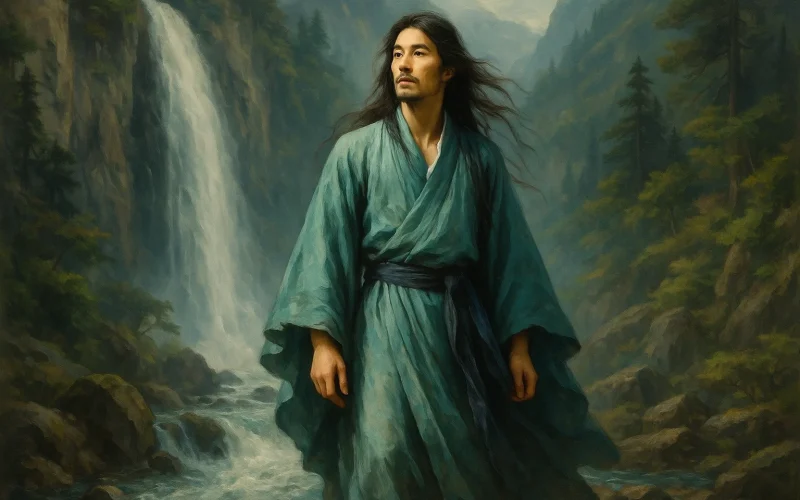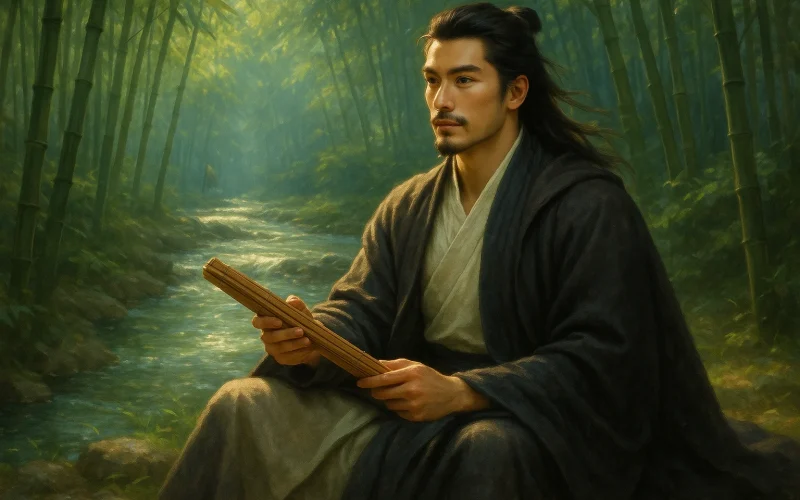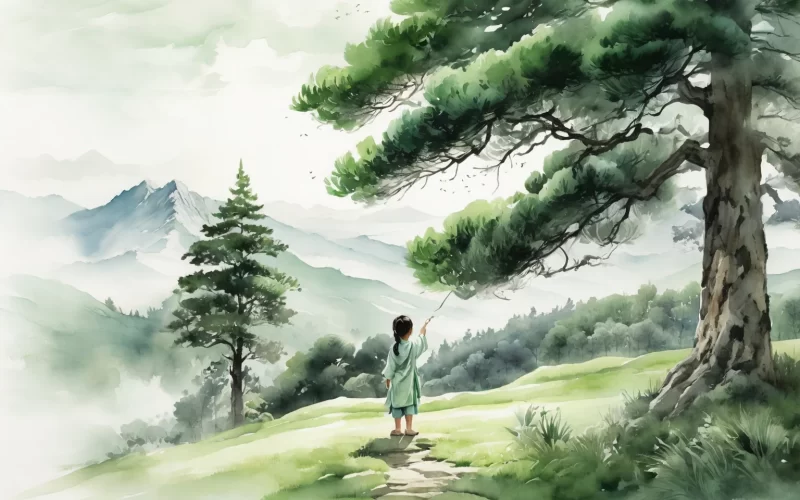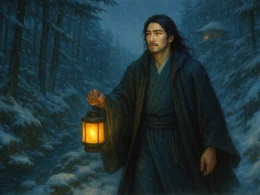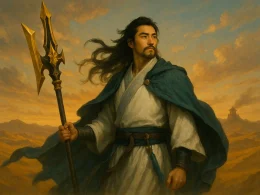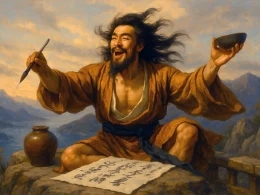Zhang Hu (张祜, 785-849 A.D.) was a poet from Qinghe in the Tang Dynasty, he wrote more than a thousand poems in total. In his early years, he lived in Gusu, but in the middle of Changqing, he was not recommended by Linghu Chu. He was rejected by Yuan Zhen, so he went to Huainan and lived in seclusion in Danyang Qu'a. During his life, Zhang Hu made remarkable achievements in poetry. Zhang Hu was named after his poem "Three thousand miles from his homeland, twenty years in the deep palace", and his 349 poems are included in The Complete Tang Poems.
Zhang Hu was very talented in poetry, and his close friends were all outstanding figures of the time, yet he did not study the imperial examinations and essays. During the period from Yuanhe to Changqing, Zhang Hu was highly valued by Linghu Chu, who, when he was the governor of the Tianping Army, personally drafted a memorial to recommend Zhang Hu and presented 300 poems of Zhang Hu to the court. In his essay, he said, "Every five-word poem should include the six arts. Nowadays, many people have a loose style of writing. There is no master in the poetry world. Zhang Hu has been living in the jungle for many years and has been an expert in poetry and fiction. He studied deeply and painstakingly and searched deeply for imagery, and was respected by his peers. I would like to ask someone to copy his poems and present them to the Gate of Guangshun, begging the emperor to give them to the Ministry of the Central Secretariat and the Ministry of the Interior for processing." Zhang Hu came to the capital at a time when Yuan Zhen was known to have a deep and unpredictable mind and was very powerful in the court, so the emperor summoned Yuan Zhen and asked him if Zhang Hu's poems were good. Yuan Zhen said, "Zhang Hu's poems are just a small skill, a great man would not write like him. If he is rewarded too much, I am afraid it will affect your Majesty's moral education." The emperor nodded at that. In this way, Zhang Hu returned to his hometown lonely. Zhang Hu then lived in Huainan.
At that time, Du Mu was the ambassador of Du Zhi and treated Zhang Hu very generously. Du Mu had a poem for Zhang Hu, saying, "Who can be like Zhang Gongzi? Zhang Hu often recited his poems over and over again, carving out the words and phrases, and whenever his wife and children called him, he did not respond, saying, "I am about to make flowers in my mouth, do I care about you?" He visited many famous Buddhist temples, such as Lingyin Temple and Tianzhu Temple in Hangzhou, Lingyan Temple and Lengjia Temple in Suzhou, Huishan Temple and Shanquan Temple in Changzhou, Ganlu Temple and Zhaoyin Temple in Runzhou, and often inscribed poems and composed fusions in all the places he visited. Zhang Hu once visited Li Shen, the minister of Huainan Festival, who called himself a "fisherman". Li Shen thought it was unusual, so he asked, "What do you use as a fishing rod for fishing?" Zhang Hu said, "I use rainbow." "What do you use as a fish hook?" He replied, "With a bent crescent moon." Then he asked, "What do you use as bait?" The reply was, "Use the short Li Sangha as bait." Li Shen thought Zhang Hu was majestic, so he gave him many gifts to let him go. When Zhang Hu first passed through Guangling, he wrote a poem, "Ten miles of long streets are connected to the city, and the gods are seen on the bright moon bridge. Life is only a death in Yangzhou, Zen wisdom mountain light good tomb field." During the Dazhong period, he did die in his hermitage in Danyang, which is said to be a poetic prophecy.
While Wei Tong Bu Yu was ashamed of being a gentleman alone, and Mr. Linghu Chu was roughly similar to him, Yuan Zhen was not so anymore. Ten praises are not enough, but one slander is more than enough. The size of people's achievements varies, and we can see his person from here. Yuan Zhen says that Zhang Hu's achievements are trivial and trivial, but is this not what Yuan Zhen is capable of? He hated the wise man and framed him without waiting for him to enter the door, and treated himself with leniency while demanding others, which was a villainous act of going through the wall. Zhang Hu was able to live his life as a virtuous scholar, and his good reputation was not spread by the bell and the censer, but he was able to walk tall in that era, and is still praised by people. It is God's will that he was not appreciated by the king, and it is also God's will that his beautiful name is not extinguished! Is this comparable to the kind of people who are left in disgrace by bending to please and flattering?






